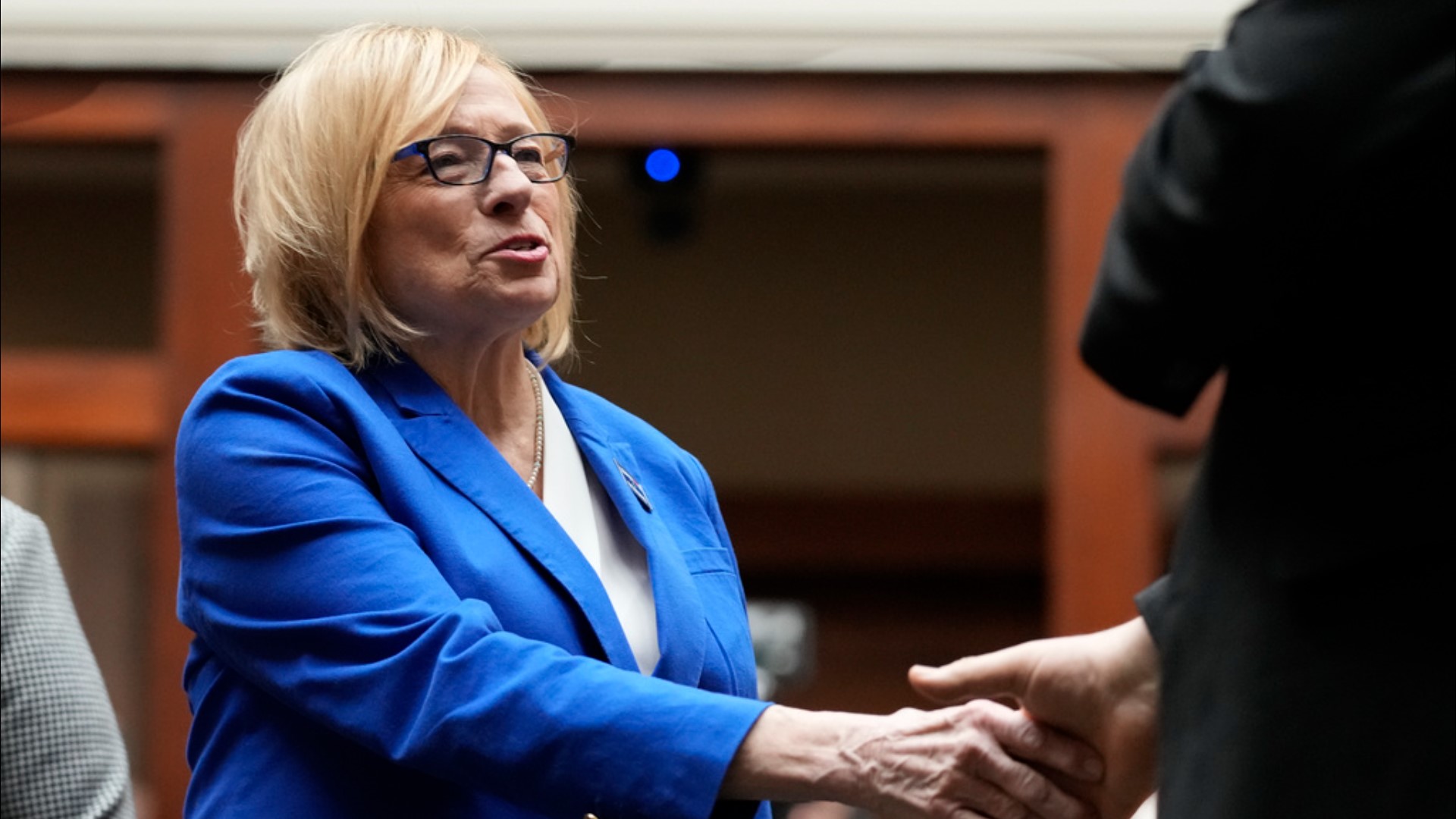PORTLAND, Maine — Maine's governor rolled out legislation on Wednesday that she said will prevent dangerous people from possessing weapons and strengthen mental health services to help prevent future tragedies like the Lewiston mass shooting that shook the state.
Gov. Janet Mills, a Democrat, called for the changes in January in a speech that came three months after an Army reservist killed 18 people in the worst mass shooting in the history of the state. The reservist had a history of mental illness and erratic behavior before the shootings.
Mills said there is broad support for the kind of changes in her proposals, which would also establish a violence-prevention program at the Maine Center for Disease Control and Prevention. The proposals would need to find support in a state with a higher percentage of gun ownership than most of the Northeast.
“They are practical, common-sense measures that are Maine-made and true to our culture and our longstanding traditions while meeting today’s needs. They represent meaningful progress, without trampling on anybody’s rights, and they will better protect public safety,” Mills said.
One of Mills' proposals would strengthen the state's extreme risk protection order law. Some law enforcement personnel have said the state's yellow flag law made it difficult to remove shooter Robert Card's weapons despite clear warning signs. Mills said her change would allow law enforcement to seek a protective custody warrant to take a dangerous person into custody to remove weapons.
Another proposal would extend the National Instant Criminal Background Check System to advertised, private sales of firearms. Still another would incentivize the checks for unadvertised, private sales.
The proposals would also establish a statewide network of crisis receiving centers so that a person suffering a mental health crisis could get care swiftly, Mills said.
The governor's supplemental budget includes other proposals geared at crisis response and mental health. It also proposes to create a Maine mass violence care fund with $5 million to cover physical and mental health expenses connected to a mass violence event and not covered by insurance.
“Our community’s difficult healing process will continue long into the future, and this will provide folks with the support they need when they need it,” said Democratic Rep. Kristen Cloutier of Lewiston.
Card committed the shootings at a bowling alley and restaurant in Lewiston on Oct. 25. He was later found dead of a self-inflicted gunshot.
Card had been well known to law enforcement for months before the shootings, and a fellow reservist told an Army superior that Card was going to “snap and do a mass shooting.”

